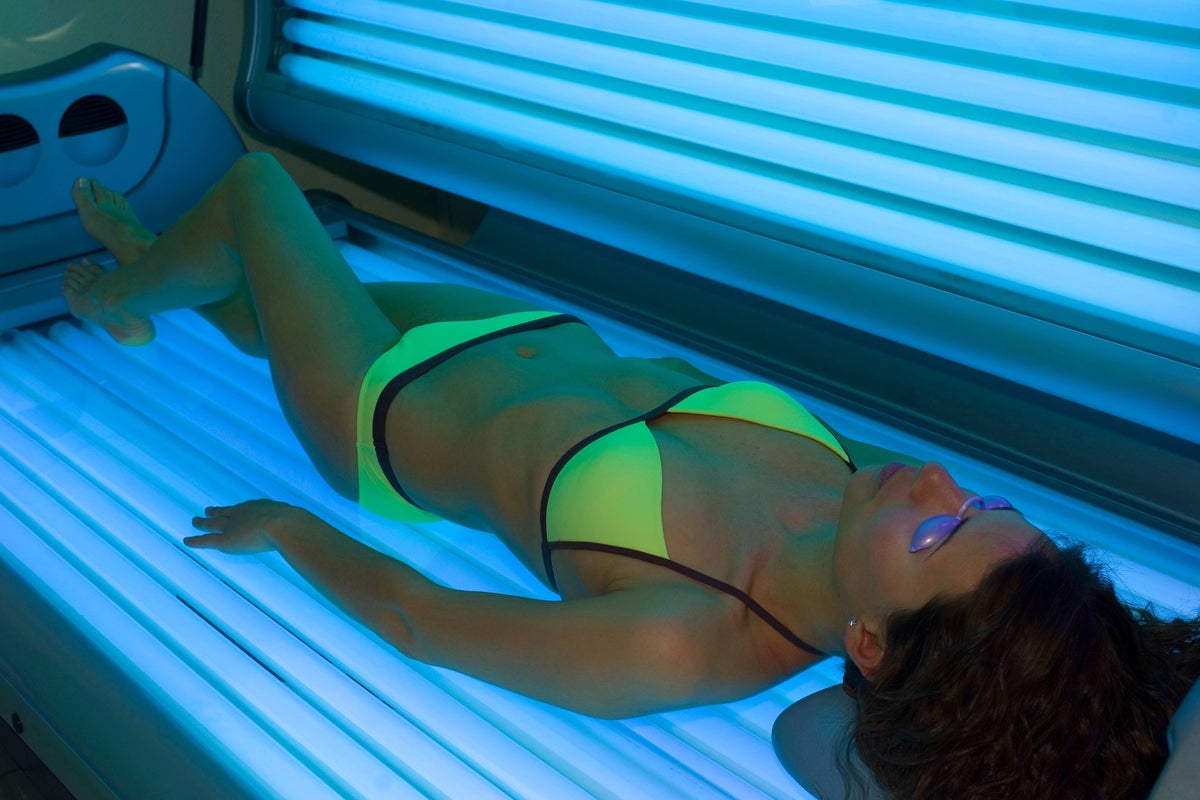
Leading cancer doctors have called for an outright ban on sunbeds in the UK, warning that the tanning devices cause cancer.
Experts say tanning facilities are linked to areas where there are higher rates of skin cancer among young adults, particularly women.
Current regulations are “ineffective” and have had “little effect” on tanning bed use by young people, they added.
A new analysis piece, published in The BMJ, concludes that an outright ban is “likely to be cost effective for the NHS”.
Professor Paul Lorigan, a melanoma expert at The Christie cancer hospital in Manchester, and colleagues, highlight how indoor tanning is experiencing a “boom in popularity, particularly among Gen Z”, after social media posts suggest the use of the tanning devices are linked to wellness.
They highlight recent surveys that suggest up to 28% of the UK public use sunbeds, despite a 2009 ruling from the International Agency for Research on Cancer which said exposure to ultraviolet radiation from sunbeds was carcinogenic, leading to melanoma, the deadliest form of skin cancer, and other skin cancers.
The new analysis says sunbed use will “continue to add to the burden of these cancers” without action.
“Existing sunbed legislation is clearly ineffective, and there is little evidence that stricter rules would help protect those who are most vulnerable,” they wrote.
Their paper highlights how there are more sunbed outlets in the north west and north east of England, and generally fewer in southern England.
And the distribution of sunbeds is similar to that of melanoma rates among young people, with the highest rates in northern England, they add.
In England there are 2,600 cases of melanoma in England among people aged 25-49 every year, two thirds of them women.
“Regions in the north east and north west with high melanoma rates among 25-49 year olds are significantly correlated,” the researchers add.
They highlight how even though teenagers are banned from using sunbeds in many countries, they still report high use.
They say that current regulation has “failed to prevent young people’s use of sunbeds”.
They conclude: “An immediate outright ban on commercial sunbeds alongside public education offers the most cost-effective solution to reduce skin cancer, save lives, and ease the burden on the NHS.”
